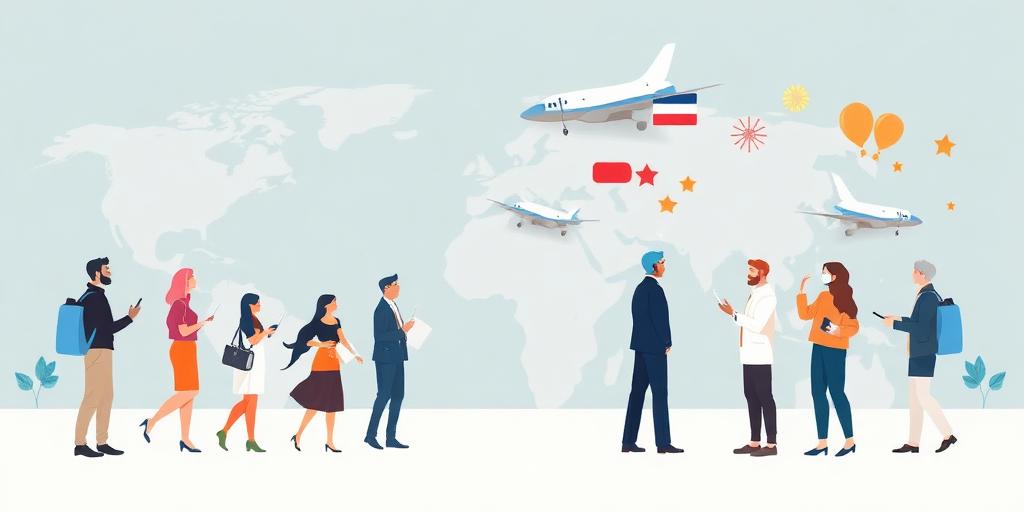The Impact of Public Diplomacy on International Relations
Public diplomacy, often described as the communication with foreign publics to establish a dialogue designed to inform and influence, has become an increasingly critical component of international relations. Unlike traditional diplomacy, which focuses on government-to-government interactions, public diplomacy seeks to engage directly with citizens of other countries to promote a nation's interests, values, and policies. This approach is predicated on the understanding that foreign policy outcomes are significantly shaped by public opinion and perceptions.
Historical Context
The roots of public diplomacy can be traced back to the early 20th century, with significant growth during the Cold War. Nations used various means, including radio broadcasts, cultural exchanges, and information programs, to win hearts and minds in the ideological battle. Today, the landscape of public diplomacy has evolved, leveraging digital media and communication technologies to reach global audiences more effectively.
Key Components of Public Diplomacy
Public diplomacy encompasses a range of activities aimed at fostering understanding and building relationships. These include:
- Cultural Diplomacy: Sharing a nation's art, music, literature, and other cultural expressions to promote mutual understanding and appreciation.
- Educational Exchanges: Facilitating student and scholar mobility to promote intercultural learning and long-term relationships.
- Information Programs: Disseminating information about a country's policies, values, and perspectives through various media channels.
- Digital Diplomacy: Utilizing social media, websites, and other digital platforms to engage with foreign publics in real-time.
- People-to-People Exchanges: Supporting programs that bring people from different countries together to foster dialogue and build trust.
The Impact on International Relations
Public diplomacy plays a crucial role in shaping international relations in several ways:
- Enhancing National Image: By effectively communicating a nation's values and achievements, public diplomacy can enhance its image and reputation on the global stage. A positive national image can facilitate stronger diplomatic ties, increased trade, and greater cooperation on global issues.
- Influencing Foreign Policy: Public diplomacy can influence foreign policy decisions by shaping public opinion in other countries. When foreign publics support a particular policy or initiative, it can create pressure on their governments to align with that position.
- Building Alliances: Through sustained engagement and dialogue, public diplomacy can help build strong alliances and partnerships based on shared values and interests. These alliances can be critical in addressing common challenges and advancing mutual goals.
- Managing Crises: In times of crisis, public diplomacy can be instrumental in managing perceptions and preventing misunderstandings. By communicating clearly and transparently, nations can mitigate the negative impact of crises on their relationships with other countries.
- Countering Misinformation: Public diplomacy can help counter misinformation and propaganda by providing accurate information and alternative perspectives. This is particularly important in an era of increasing disinformation and polarization.
Challenges and Opportunities
Despite its potential, public diplomacy faces several challenges. These include:
- Credibility: Maintaining credibility is essential for effective public diplomacy. Nations must be transparent and truthful in their communications to build trust with foreign publics.
- Cultural Sensitivity: Public diplomacy efforts must be culturally sensitive and tailored to the specific audiences they are trying to reach. What works in one country may not work in another.
- Coordination: Effective public diplomacy requires coordination across government agencies and with non-governmental organizations. Siloed efforts can undermine the overall impact.
- Evaluation: Measuring the impact of public diplomacy can be challenging. However, it is essential to evaluate the effectiveness of different programs and initiatives to ensure that resources are being used wisely.
Despite these challenges, public diplomacy offers significant opportunities for nations to shape international relations in a positive direction. By investing in strategic communication, cultural exchanges, and people-to-people programs, nations can build stronger relationships, promote shared values, and advance their interests in the world.
Conclusion
In conclusion, public diplomacy is a vital tool for shaping international relations in the 21st century. By engaging directly with foreign publics, nations can enhance their image, influence foreign policy, build alliances, manage crises, and counter misinformation. While challenges remain, the opportunities for effective public diplomacy are significant. As the world becomes increasingly interconnected, public diplomacy will continue to play a crucial role in fostering understanding and cooperation among nations.









